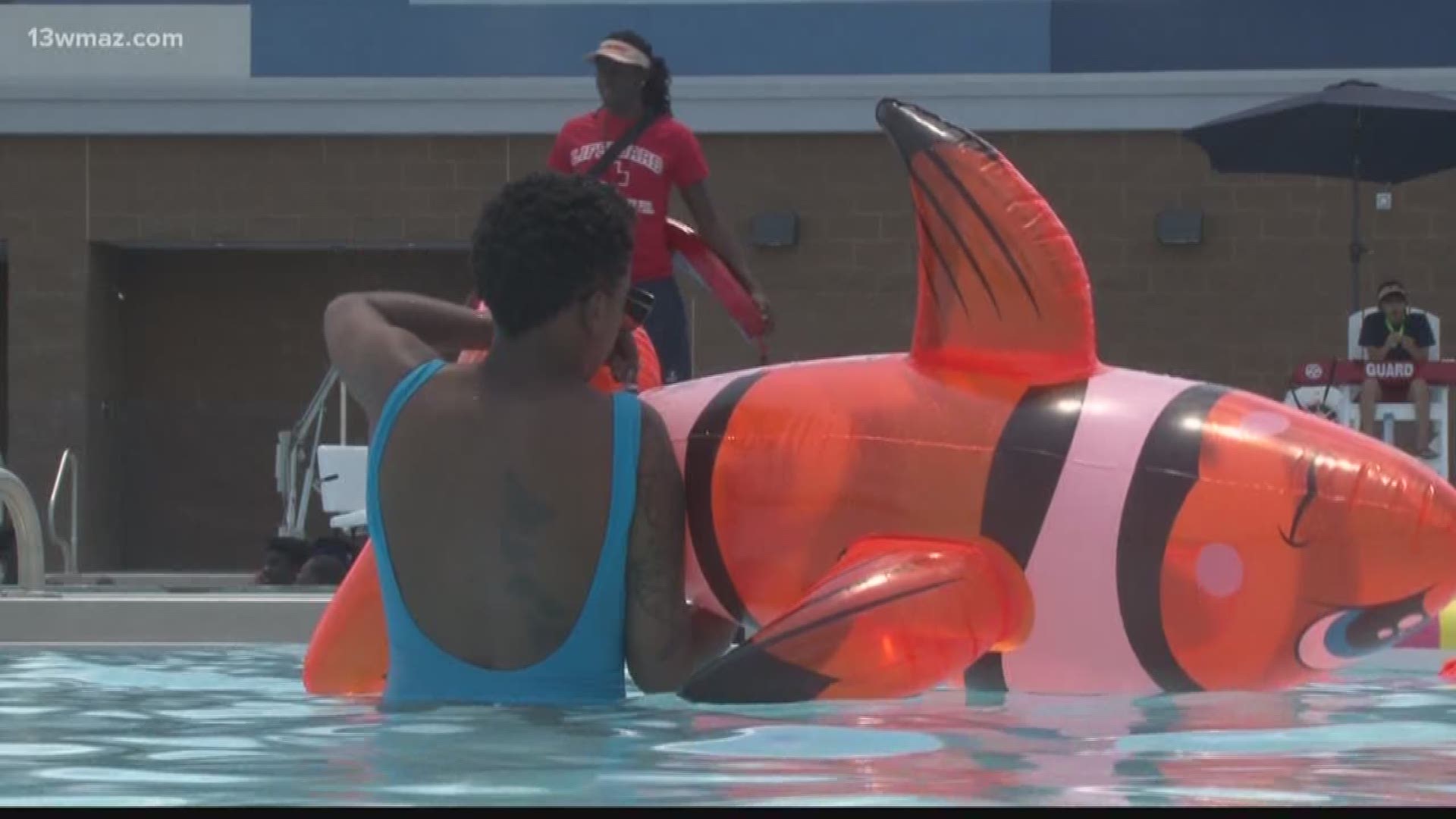Before you dive into a pool this summer, there could be something in the water that may ruin your fun.
13WMAZ visited a public pool Thursday to see if you should be worried about water diseases possibly sending you or your children to the doctor.
The Jones family loves to spend the day at the South Bibb Recreation Center pool.
Donald and China Jones say that they keep coming back because they trust it's clean enough for their daughters.
The pool's head lifeguard Joana Cohen makes sure it stays that way.
"So we will put some more chlorine in the pool and the pH is perfect," said Cohen.
She says she checks the pool's levels every two hours because when the pool gets crowded, they have to keep up.
"As the day goes on, you see the pool gets a little bit cloudier. That's because you have more users in it, more sunscreen, more people peeing in the pool," Cohen said.
The CDC says recreational water diseases like ear infections, rashes, and even diarrhea can spread in public places with water, but chlorine can kill a lot of the germs.
"No messy diapers in the pool -- that's normally where the problem stems from," said pediatrician Edward Clark.
Clark says if a pool is contaminated, it can cause an outbreak, like E. coli. "Usually those outbreaks and bad symptoms, they are going to start presenting with bloody stools and diarrhea and stuff like that."
So if you're heading to the pool this summer for a little fun in the sun, look at the water before getting in, and then make sure to watch if you have young kids.
In order to prevent the spread of viruses or diseases, The Georgia Department of Public Health recommends showering before getting into a pool, not swallowing the water, avoiding a pool if a drain cover is missing, keeping children close by, and reporting possible hazards to your local health department.

